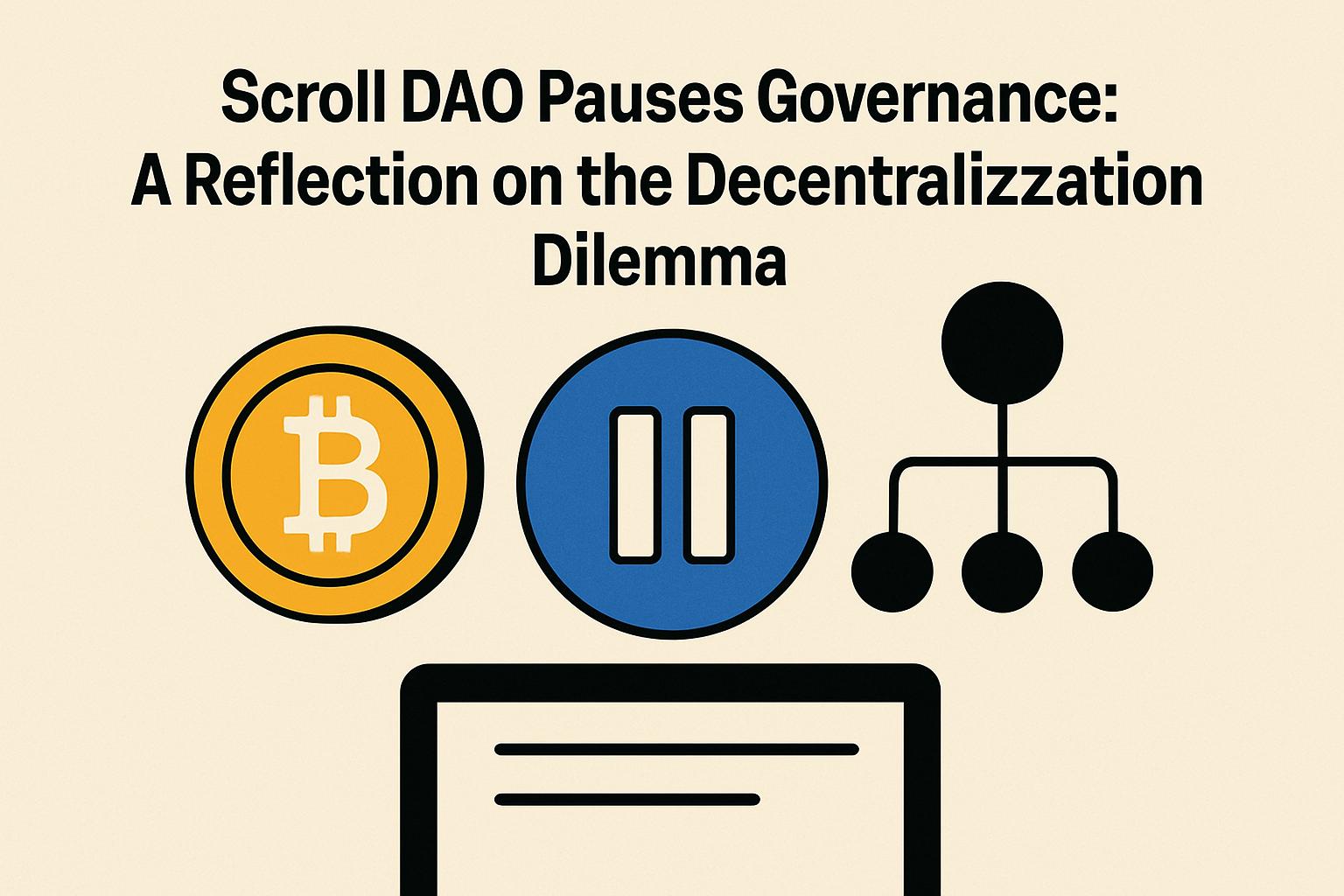The announcement that Scroll DAO, an Ethereum Layer 2 project, is halting its decentralized governance sparked significant concern within the crypto community. This latest development reignites a critical debate about the sustainability of the Layer 2 (L2) model amid shifting internal dynamics and leadership changes.
Leadership Shake-Up and Governance Pause
Recently, Olimpio, a Scroll DAO member, revealed that the DAO decided to ‘temporarily’ cease its governance activities. This decision follows the resignations of key leaders, including Eugene, a prominent figure within the DAO. During a recent meeting, co-founder Haichen Shen acknowledged the need to redesign the governance framework. Meanwhile, growth leader Raza emphasized this pause is neither a termination nor a dissolution but a temporary hiatus.
Despite the lingering effect of ongoing governance proposals within the DAO, the future proceedings of these proposals remain uncertain, echoing broader discomfort with the internal familiarity and decision-making process.
Decentralization on Trial: Balancing Vision and Reality
Researcher Haotian delves deeper into the implications of Scroll’s governance shift. He argues that the project’s inability to achieve a trustless decentralized sequencer reflects a broader failure of its zkEVM experiment. Haotian suggests this might not be entirely negative, as efforts to expedite commercialization may be hindered by traditional DAO governance, highlighting flexibility and efficiency as potential pathways forward.
This perspective aligns with broader trends, where some view the shift from decentralization as a step toward operational efficiency, even if it means embracing centralized structures for pragmatic reasons.
The L2 Model: Facing a Crossroad?
Haotian’s analysis invites a reevaluation of the L2 landscape, suggesting the inherent vulnerabilities in the L2 narrative. The departures and new L1 ventures by Optimism’s core developers and projects like Hyperliquid and Stripe exemplify this fragility. Haotian notes that projects relying on L2, such as Base and Robinhood, may eventually pursue autonomy beyond the L2 ecosystem.
He predicts that general-purpose L2s will likely struggle against high-performance Layer 1s, as they depend heavily on Ethereum’s security inheritance, lacking the robust ecosystem needed for prosperity. The selective repositioning of L2s to compete in specific niches may become a necessity, or risk market obsolescence.
A Broader Industry Perspective
Scroll’s choice to halt its DAO governance amidst these challenges illustrates Ethereum’s technical debt reckoning. This move may foreshadow similar decisions by other L2 projects grappling with analogous dilemmas. Scroll’s decisions can signal the evolving prospects of L2s, as these projects navigate the challenging waters between technological, governance, and commercial priorities.
The pause by Scroll DAO highlights the fragility of decentralized ambitions, underscoring the intricate struggles faced by Layer 2 models. Its future actions are poised to serve as a vital barometer for the development of the broader L2 ecosystem.

![[News] Bitcoin at a Turning Point? 10x Research Signals a Bullish Macro Shift Ahead](https://cryptoexplores.com/wp-content/uploads/2025/06/new20250616.jpg)
![[News] Binance Lists $HOME, the Gas-Free, Bridge-Free All-in-One DeFi App](https://cryptoexplores.com/wp-content/uploads/2025/06/news20250617.jpg)